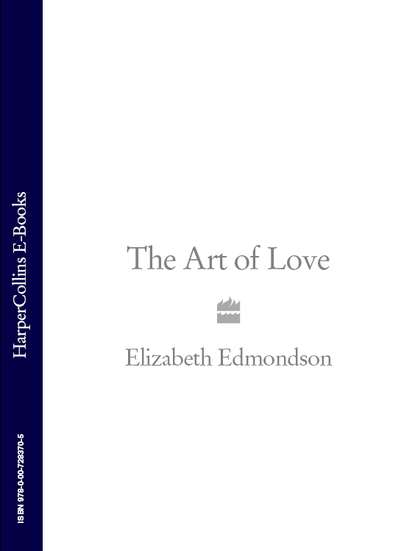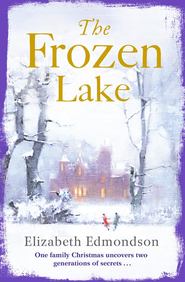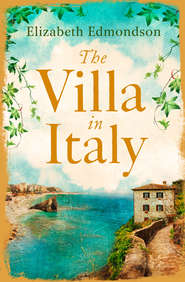По всем вопросам обращайтесь на: info@litportal.ru
(©) 2003-2024.
✖
The Art of Love
Автор
Год написания книги
2018
Настройки чтения
Размер шрифта
Высота строк
Поля
‘You had hoped what?’ Polly felt a cold sensation in her stomach. Paris?
‘You’ll need all the details if you really must have a passport. I’ll write them down for you.’
Polly watched her mother as she got up and went to the drawer where she kept scraps of paper. She smoothed out the back of an envelope, and wrote in her clear italic hand. Then she passed it to Polly, and went over to stand at the sink.
Polly stared down at the elegantly inscribed words.
‘This makes no sense,’ she exclaimed. ‘Who’s this — I can’t even pronounce it — this Polyhymnia Tomkins?’
‘That’s your real name,’ Dora said, leaning on the sink and running the tap, so that Polly had to raise her voice to be heard.
‘Tomkins? I’m Polly Smith. How can I ever have been called Tomkins? And Polyhymnia? That’s not even a proper name.’
‘I’m not your mother,’ Dora said. ‘And Ted Smith wasn’t your father.’
TWO
On the tram back into the centre of London, Polly sat unseeing, not noticing the people around her, or hearing the grumbles of two women in the next seat about the weather, not aware of the bell clanging, the swaying as the tram went over points, oblivious to everything outside herself, as she tried to make sense of what her mother — who was not her mother, after all — of what Dora Smith had told her.
What kind of a mother could she have been, this woman who had abandoned her so casually into the care of her sister when she was only weeks old, and never saw her again, who clearly didn’t care whether she were alive or dead?
What kind of a mother would call her daughter Polyhymnia?
‘Polyhymnia’s one of the muses,’ Dora Smith told her. ‘The muse of sacred song.’
Sacred song indeed. Well, no one could have been more wrongly named, because, to Dora Smith’s dismay, Polly had no ear for music at all. She had ground her way through piano lessons until both of them had given up with relief, and she couldn’t hold a tune; singing at school had been a case of miming and mumbling, under the constant frowns of the singing mistress.
Dora Smith had been less than forthcoming about her sister, Thomasina. That was another ridiculous name. ‘We went our separate ways,’ was all she would say. ‘We weren’t at all alike.’
‘Where is she? Is she still alive?’
‘I don’t know, and that’s the honest truth.’
‘How could you lose touch with a sister? If I had a sister…’
Which was an unkind thing to say. Of course, if she, Polly, wasn’t the Smiths’ daughter, then Dora Smith had never had children of her own. Polly had asked, when she was a little girl, why she didn’t have a brother or sister, and Ted had put down his newspaper and frowned at her, saying that wasn’t a suitable question to ask. Later, when she was in her bath, being soaped and flannelled from nose to toe by her mother, Dora Smith had said with a sigh that she wished Polly did have a little brother or sister, but fate had chosen for her to be an only child.
I couldn’t have had better parents, Polly told herself fiercely.
Dora Smith had said, with a world of sadness in her voice: ‘You are my daughter, Polly. You’re the only daughter, the only child I had. Ted loved you as if you were his own, and well, a niece is close. A sister’s child. You’re my blood, that counts for a lot.’
Only it didn’t seem to count sister to sister, not if Thomasina had walked out on her sister and her baby’s life with never a backward glance.
‘Why Paris?’ Polly wanted to know. ‘What was she doing in Paris?’
There it was again, Dora’s obvious reluctance to answer questions. ‘She was a bit of a gadabout, restless, never happy in one place. She had friends in Paris, I suppose.’
Illegitimate. Polly stared out into the chilly darkness, vaguely lit by the headlights of cars and streetlights gleaming dully through the thickening fog. She was illegitimate.
‘What you’re saying is that I’m a bastard,’ she had said, raging at Dora.
‘Don’t use that word. Not ever.’
‘It’s the word other people will use. Didn’t that ever occur to my mother?’
‘Your mother…your mother was an unconventional person. She wouldn’t — that is, what people in general might consider a stigma, wouldn’t be to her. I remonstrated with her when she arrived on our doorstep with you in her arms. I said she should marry your father, so that you wouldn’t have the disgrace of illegitimacy, but she said no healthy baby could be any kind of a disgrace.’
‘That was big of her.’
‘They’ll give you a short birth certificate at Somerset House,’ Dora said. ‘One that doesn’t have any blank spaces. Thomasina refused to fill in any details for your father.’
‘It was an English birth certificate, though? I am English?’
‘Of course you are,’ said Dora, shocked. ‘As English as a Chelsea bun. At least she had the sense to register you at the consulate there, that’s what you do, for English babies born abroad. Go back to Somerset House with those details I’ve written down, and they’ll find the entry all right.’
It was extraordinary to think that all these years she’d lived as Polly Smith, and in fact she was no such thing. Her passport would proclaim to the world that she was Polyhymnia Tomkins. A stranger. She couldn’t think of herself as any such person. Polyhymnia Tomkins was the fabrication, she was the person who didn’t exist, not Polly Smith.
‘You always said Polly was a pet name for Pauline.’
‘Ted said we couldn’t have a girl called Polyhymnia. He said you’d be teased at school, and the neighbours would think it odd.’
‘Did you live here when I was born?’ Polly had asked her mother. ‘Here in Bingley Gardens? You told me you’d always lived here.’
‘We didn’t. We lived in South London, in Putney, when Ted and I were first married. When you arrived, Ted said we’d have to move. He’d been with the London, Brighton and South Coast Railway, but he didn’t mind moving to north London because he’d applied for a better job, with the Great Northern. It was a promotion, so he was pleased about that, only it was a long way to travel right across London to Kings Cross every day. So we moved to the other side of the river, where no one would know that you weren’t our child.’
No parents could have done more for her than Ted and Dora Smith had done, Polly knew that. It was unreasonable and ungrateful of her to be angry with Dora for never telling her who she really was, but she wasn’t feeling reasonable or grateful.
‘I knew I’d have to tell you one day, only the right moment never seemed to come. And I came to forget that you weren’t really my daughter.’
And to all intents and purposes, Polly was their daughter. She didn’t remember Ted Smith very well; she’d been seven when he went away to fight in France, and nine when the telegram came saying that he’d been killed. What with the savings he had left and what Dora had made with her piano lessons, she had never lacked for anything, and she hadn’t lacked for love, either, Dora was lavish in that commodity.
Dora had seen to it that Polly worked hard at school, found the money for extra art lessons when it became clear how gifted she was, and instead of having to leave school at fourteen to earn her keep like several of her friends, she was allowed to stay on and try for the scholarship to art college. Dora Smith had paid for the extra that the scholarship didn’t cover, making sure that Polly had everything she needed.
Not for the first time, Polly found herself wondering about Dora and her mother’s family. There had been two sisters. Did she have any uncles? What about her grandparents? Dora had always been reticent about her family. ‘My parents were quite old when they had me, and they’re long since dead,’ was the sum of the information she was prepared to give Polly. Where had they lived, where had Dora — and, of course, Thomasina — grown up?
‘Oh, various places,’ was the evasive answer to that question.
Polly came to with a start. The tram had reached Kingsway, and everybody except her had got off. ‘Hurry along there,’ the conductor said, his face pinched with cold. ‘Haven’t got all day, you know.’
Polly felt strangely discouraged as she walked through the Georgian streets to the house in Fitzroy Street where she lived. She let herself in, the familiar smell of wet shoes and overcooked cabbage washing over her. Her landlady was mean with light bulbs, and the light in the stairwell was almost as dim as the foggy world outside the door. Polly climbed the four flights of stairs to the top floor. She opened the door to her attic room, took off her mac and hung it on the back of the door. Then she removed her damp beret and ran her hands through her hair.
Did she want to bother with a passport at all? Not to have one would mean she couldn’t go abroad. Nor, according to Roger, could she get married. Was that true? Vague ideas of special licences flitted through her head, but Roger would expect her to produce a birth certificate in any case, he’d want to file it away with all his other documents.
The moment she had a passport, it was hullo, Polyhymnia Tomkins, goodbye Polly Smith. Yet, legally, she supposed, she was already Polyhymnia Tomkins, always had been Polyhymnia Tomkins. It was Polly Smith who did not exist.
What’s in a name? she said to herself.
A lot. A name wasn’t just a series of letters arranged in a particular way. A name was a person. It could be more than one person, there were probably dozens, hundreds of Polly Smiths up and down the country. But each one was identified by her name. Without a name, you weren’t a person. It would be impossible to be truly human without a name. You gave a pet a name, a cat, a horse, a tamed magpie, even, was marked out from others of its kind by its name. Although animals were different, a new owner might change a creature’s name. It was a mark of humanity that your name was an integral part of you.









